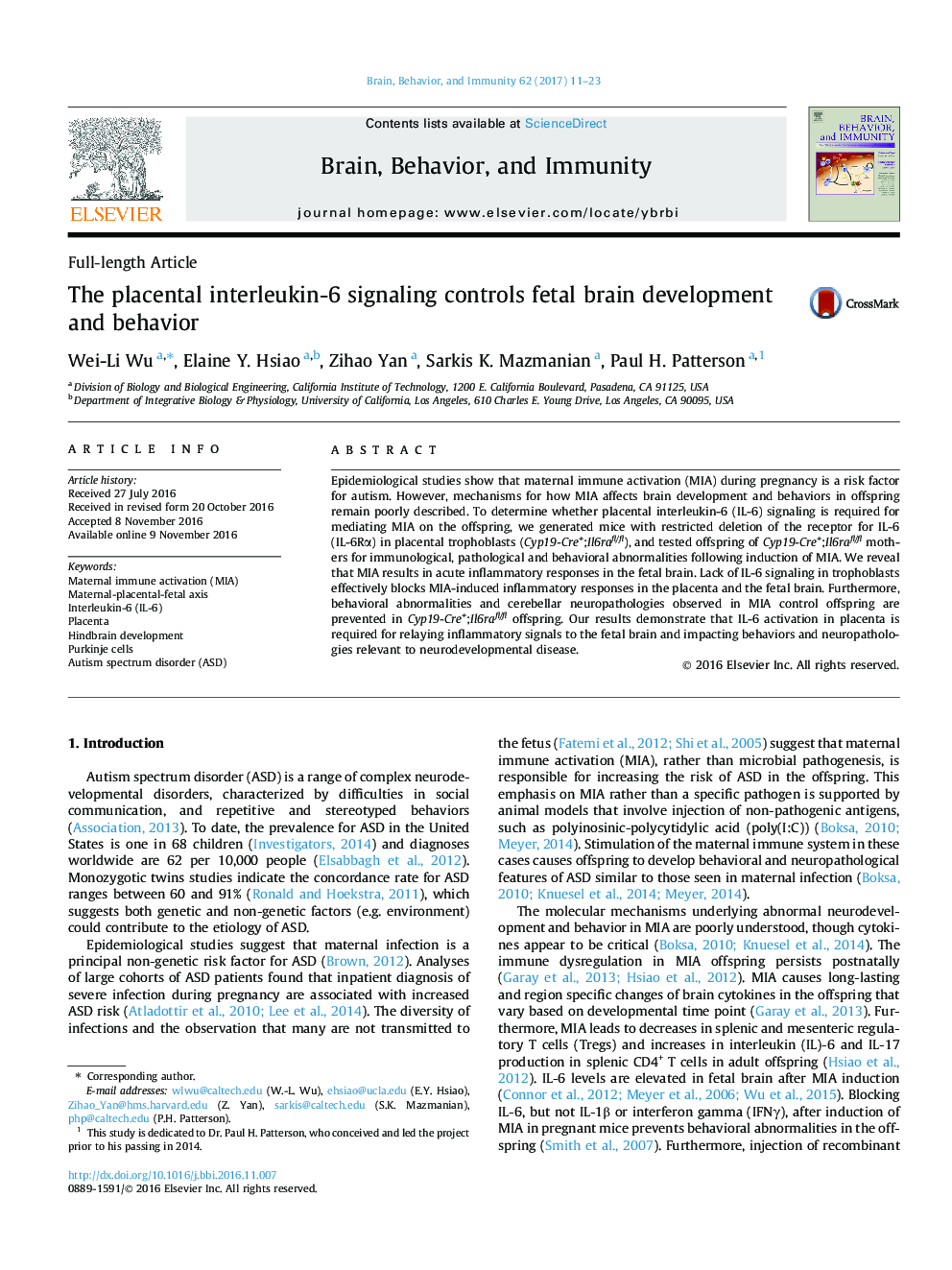| Article ID | Journal | Published Year | Pages | File Type |
|---|---|---|---|---|
| 5040775 | Brain, Behavior, and Immunity | 2017 | 13 Pages |
â¢IL-6 downstream signaling is activated in specific regions of fetal hindbrain after MIA.â¢Placental IL-6Rα knockout prevents MIA induced inflammatory responses in placental-fetal axis.â¢MIA-induced behavioral abnormalities are prevented in placental IL-6Rα knockout mice.â¢MIA-induced cerebellar neuropathologies are prevented in placental IL-6Rα knockout mice.
Epidemiological studies show that maternal immune activation (MIA) during pregnancy is a risk factor for autism. However, mechanisms for how MIA affects brain development and behaviors in offspring remain poorly described. To determine whether placental interleukin-6 (IL-6) signaling is required for mediating MIA on the offspring, we generated mice with restricted deletion of the receptor for IL-6 (IL-6Rα) in placental trophoblasts (Cyp19-Cre+;Il6rafl/fl), and tested offspring of Cyp19-Cre+;Il6rafl/fl mothers for immunological, pathological and behavioral abnormalities following induction of MIA. We reveal that MIA results in acute inflammatory responses in the fetal brain. Lack of IL-6 signaling in trophoblasts effectively blocks MIA-induced inflammatory responses in the placenta and the fetal brain. Furthermore, behavioral abnormalities and cerebellar neuropathologies observed in MIA control offspring are prevented in Cyp19-Cre+;Il6rafl/fl offspring. Our results demonstrate that IL-6 activation in placenta is required for relaying inflammatory signals to the fetal brain and impacting behaviors and neuropathologies relevant to neurodevelopmental disease.
